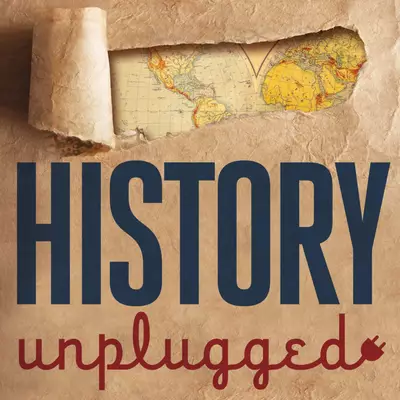Listen on Your Favorite App
Europe’s Babylon: 16th-Century Antwerp was a City of Wealth, Vice, Heresy, and Freedom
January 04, 2022
00:00
52:38
Listen on Your Favorite App
Before Amsterdam, there was a dazzling North Sea port at the hub of the known world: the city of Antwerp. For half the sixteenth century, it was the place for breaking rules – religious, sexual, intellectual. Known as Europe’s Babylon, the once-humble Belgian city had an outsized role in making the modern world.
In the Age of Exploration, Antwerp was sensational like nineteenth-century Paris or twentieth-century New York. It was somewhere anything could happen or at least be believed: killer bankers, a market in secrets and every kind of heresy.
And it was a place of change—a single man cornered all the money in the city and reinvented ideas of what money meant. Jews fleeing the Portuguese Inquisition needed Antwerp for their escape, thanks to the remarkable woman at the head of the grandest banking family in Europe. She set up an underground railroad for Jews so that they could flee persecution and find safe passage to friendlier lands like Poland or the Ottoman Empire.
Thomas More opened Utopia there, Erasmus puzzled over money and exchanges, William Tyndale sheltered there and smuggled out his Bible in English until he was killed. Pieter Bruegel painted the town as The Tower of Babel.
But when Antwerp rebelled with the Dutch against the Spanish and lost, all that glory was buried. The city that unsettled so many now became conformist. Mutinous troops burned the city records, trying to erase its true history.
To discuss the growth and decline of this city is today’s guest is Michael Pye, author of Europe’s Babylon: The Rise and Fall of Antwerp’s Golden Age.
In the Age of Exploration, Antwerp was sensational like nineteenth-century Paris or twentieth-century New York. It was somewhere anything could happen or at least be believed: killer bankers, a market in secrets and every kind of heresy.
And it was a place of change—a single man cornered all the money in the city and reinvented ideas of what money meant. Jews fleeing the Portuguese Inquisition needed Antwerp for their escape, thanks to the remarkable woman at the head of the grandest banking family in Europe. She set up an underground railroad for Jews so that they could flee persecution and find safe passage to friendlier lands like Poland or the Ottoman Empire.
Thomas More opened Utopia there, Erasmus puzzled over money and exchanges, William Tyndale sheltered there and smuggled out his Bible in English until he was killed. Pieter Bruegel painted the town as The Tower of Babel.
But when Antwerp rebelled with the Dutch against the Spanish and lost, all that glory was buried. The city that unsettled so many now became conformist. Mutinous troops burned the city records, trying to erase its true history.
To discuss the growth and decline of this city is today’s guest is Michael Pye, author of Europe’s Babylon: The Rise and Fall of Antwerp’s Golden Age.
See omnystudio.com/listener for privacy information.
More Episodes
See all episodes
Meet Your Host

Scott Rank is the host of the History Unplugged Podcast and a PhD in history who specialized in the Ottoman Empire and modern Turkey. Before going down the academic route he worked as a journalist in Istanbul. He has written 12 history books on topics ranging from lost Bronze Age civilizations to the Age of Discovery. Some of his books include The Age of Illumination: Science, Technology, and Reason in the Middle Ages and History’s 9 Most Insane Rulers.. Learn more about him by going to scottrankphd.com.
